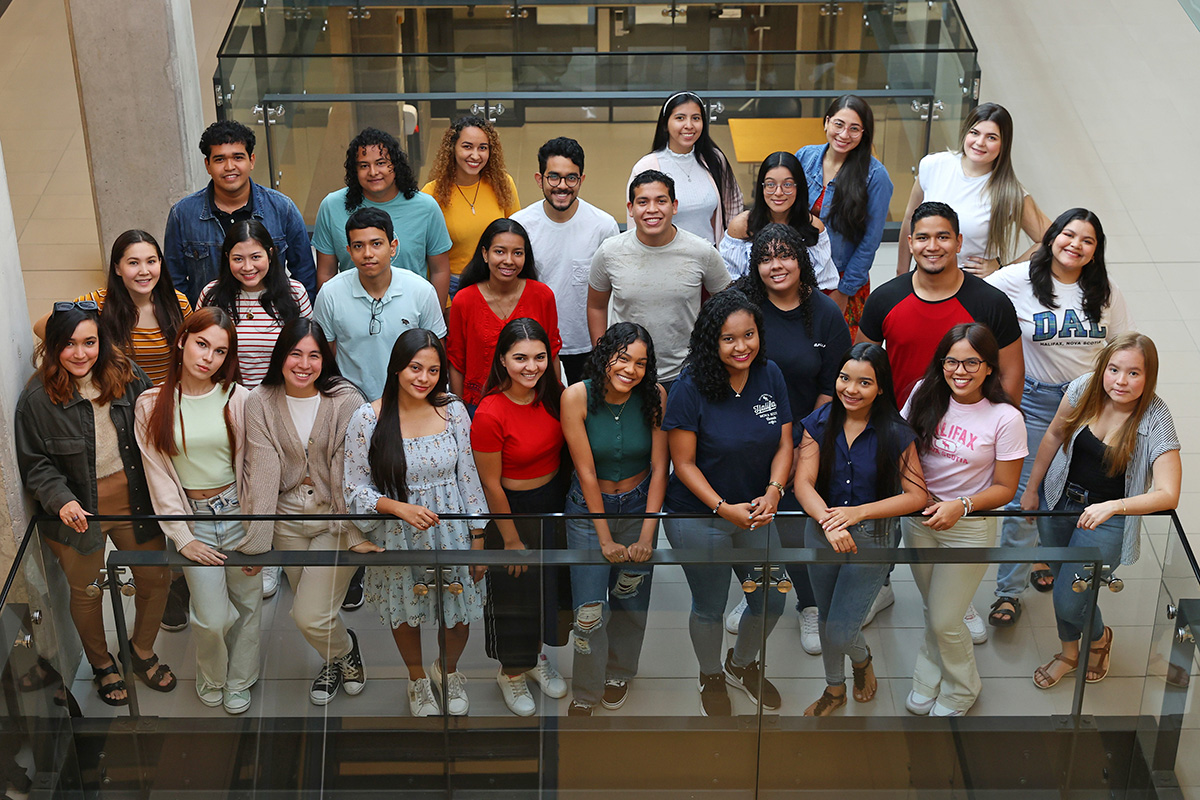A university campus can set the stage for much more than classroom learning. For many people, it’s a place for creating memories of new friendships, new cultural experiences and new learning challenges — big and small.
Even when the formal academic year came to close this past spring, Dal’s campus continued to stay alive with cohorts of students travelling from different parts of the world to experience Halifax, get a taste for university life in Canada, and learn.
Among those were nearly 30 students from Colombia who voyaged here in July to participate in a rigorous, seven-week Language Educators’ program offered through the English Language Studies Department at the Faculty of Open Learning & Career Development in collaboration with the in Colombia.
The program, which includes a four-course Certificate in English-medium Instruction (EMI) and three professional development courses in language education, is part of the Universidad del Atlántico’s multilingual policy. The university is known nationally and internationally for fostering a rich globalized culture on its campus, and the program’s mission is to train educators who are leaders in foreign language education, and who show innovation, creativity and a deep understanding of cultural diversity.
“The main purpose of the training is to strengthen their linguistic, pedagogic and intercultural competences, since they will become English instructors of undergraduate students back home at Universidad del Atlántico and will need to use the skills they’ve developed here to cope with the challenges of teaching at home,” explains Abraham Sir, the coordinator of the immersion program and of the Bachelor’s Program in Foreign Languages from the Universidad del Atlántico.
Participants for the program this year, chosen from close to 150 candidates, attended classes six days a week where they developed knowledge of Content and Language Integrated Learning (CLIL) strategies for teaching and building assessments. The EMI certificate was designed to address the need for bridging theory and practice-based training for teachers and training them to explore innovative ways to teach English or other languages through the content they teach.
The students also received training on teaching English for Academic Purposes and Language Education Online to keep up with the growing demands of an evolving English teaching specialization.
 Ã˝
Ã˝
An experience of many firsts
The visit to Dal’s campus has been an experience of many firsts for the students — including, for some, their first time on a plane — and what they describe as learning extends far beyond the classroom — from adapting to a scent-free policy to embracing the dorm experience with shared living spaces and forming new and unexpected friendships.
One student describes his experience as a process of self discovery.
“I now want to take risks and I feel like if I want to do something, I won’t hold myself back. Someone [in our group] recently told me that I’m a risk taker and that I find new ways to do things. I didn’t know that about me before travelling to the campus and I’m grateful for that learning about myself.”
When they were not designing lessons or thinking through how they’ll deliver classroom lectures, the students explored the sights and experiences this coastal city of Halifax has to offer through a socio-cultural course titled English in Use. The course encourages students to use English and engage with locals outside the classroom.
“It’s really nice to see a lot of cultures. It’s a very open city. It’s really open and I really like that,” says one student. “People can express themselves here, I can see it on their faces and on their clothes. It’s really good to be in a country and a city that allows people to be themselves.”
As the students travelled back to Colombia in early August, they returned more confident and knowledgeable teachers in the classroom, and as one student describes, “better versions of ourselves.”
For these students, the fun, fear, laughter and adventure they enjoyed seems to have sparked new inspiration for the journey ahead.
“This is the beginning of something bigger,” says one. “We’re beginning our destiny.”

